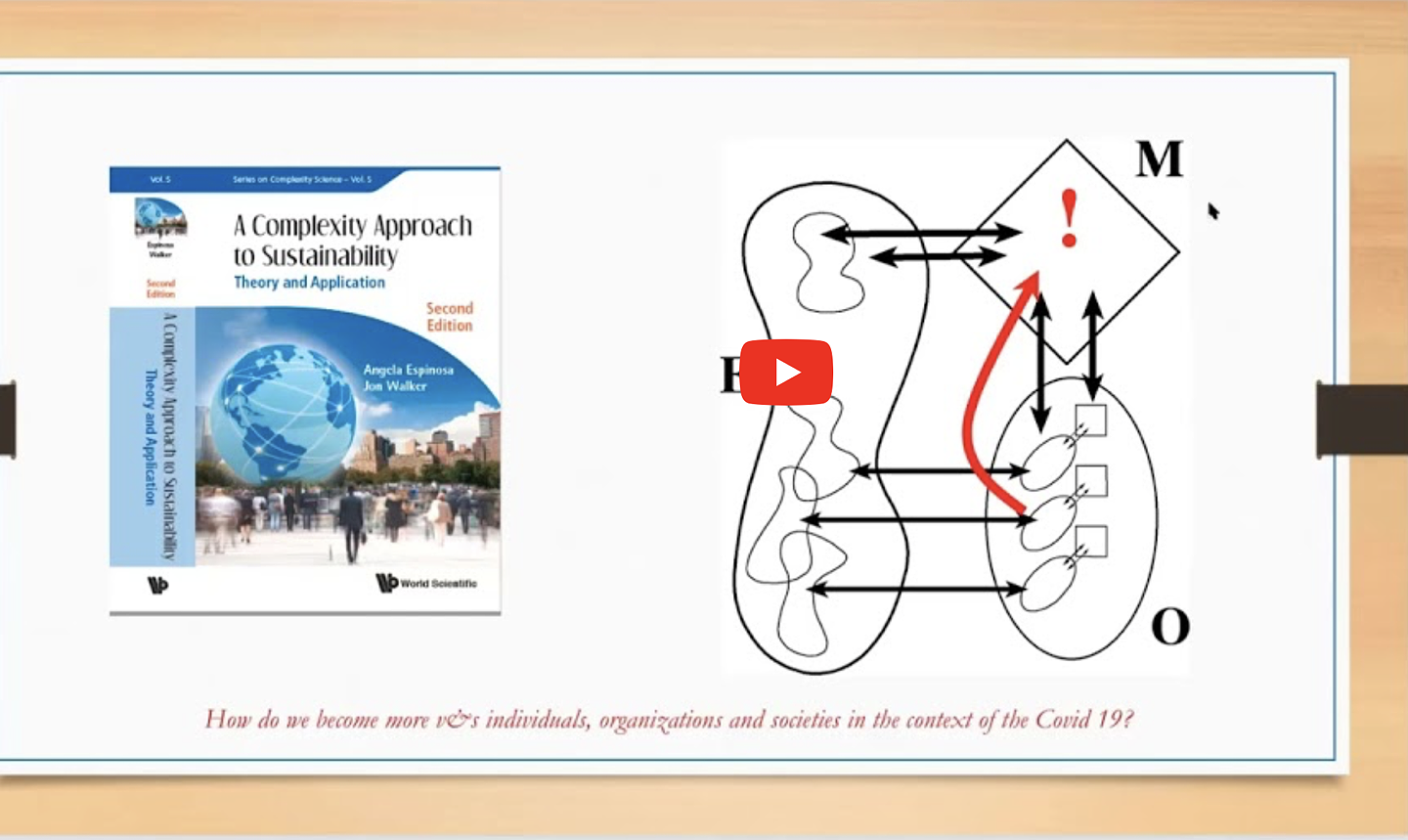
Reflections from the COVID19 Pandemic
In this seminar I will offer a brief introduction to Espinosa & Walker’s approach to sustainable self-governance. In particular, I will use this approach to reflect on the Covid-19 pandemic, and reflect on the early alarms that the pandemic is raising for us, at different levels of organisation, from the individual to the global level. Based on our recent experience during the pandemic,
I will reflect, on how an individual, a business, a community, and a particular sector of the economy (the health sector) could identify ways to progress faster towards viability and sustainability in the current global crisis. The webinar is an invitation to engage in a fruitful conversation with the participants on ways to developing Stafford’s legacy on more innovative and also pragmatic approaches to sustainability and self – governance and to contribute to a better post Covid-19 society.
Speaker Bio

Angela graduated as a computer and systems engineer in 1981, and got a PhD on Organisational Cybernetics from Aston Business School, UK in 1995. She worked as the Director of the Secretariat of Information and Systems of the Colombian President’s Office (1990 – 1992) and as a consultant for major cybernetic government projects in Colombia in the 1990s. She is a (retired) Reader in Cybernetics, from the Centre of Systems Studies – Hull University, where she has taught systems and cybernetics in the MBA and the PhD programs (2002-2021). She has been a visiting Fellow in several international universities, and provided consultancy for both private and public organisations in Latin America and Europe. Her research is focused on applying cybernetics to support self -transformations towards improved resilience, viability and sustainability on businesses, communities and networks. She has published extensively books, research monographs, book chapters and papers in the European Journal of Operational Research, and other systems and cybernetics journals. Her recent book with J Walker, A Complexity Approach to Sustainability published by Imperial College Press (2nd ed.) summarises their recent work and applications. They have also co-founded and co-chaired the Metaphorum, an NGO developing Stafford Beer’s legacy since 2002.
